1950s
Hula-Hooping Nuns
I imagine that hula hooping while wearing a habit would add to the challenge.
"Sister Mary Pius gets plenty of encouragement from her sister teachers while giving hula hoop a whirl."

The Daily Oklahoman - Oct 19, 1958
Posted By: Alex - Mon Dec 20, 2021 -
Comments (5)
Category: Fads, Nuns, 1950s
Hube the Cube, Professional Beatnik
Read of Hube the Cube's unique job in the final paragraphs of the article below.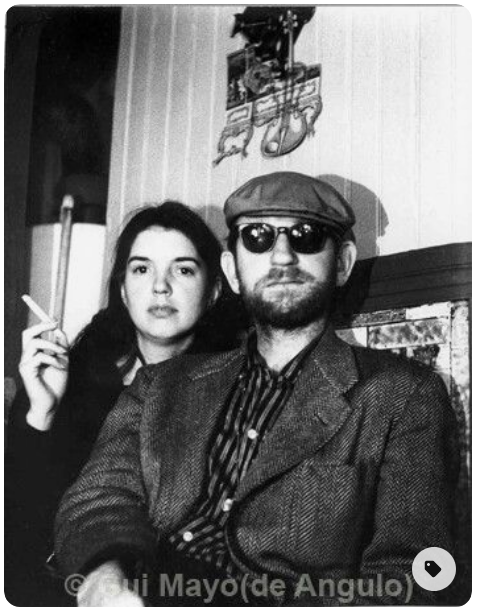
(Artists Jane Belson & Hubert "Hube the Cube" Leslie)
Newspaper source: Lansing State Journal (Lansing, Michigan) 01 Sep 1960, Thu Page 7
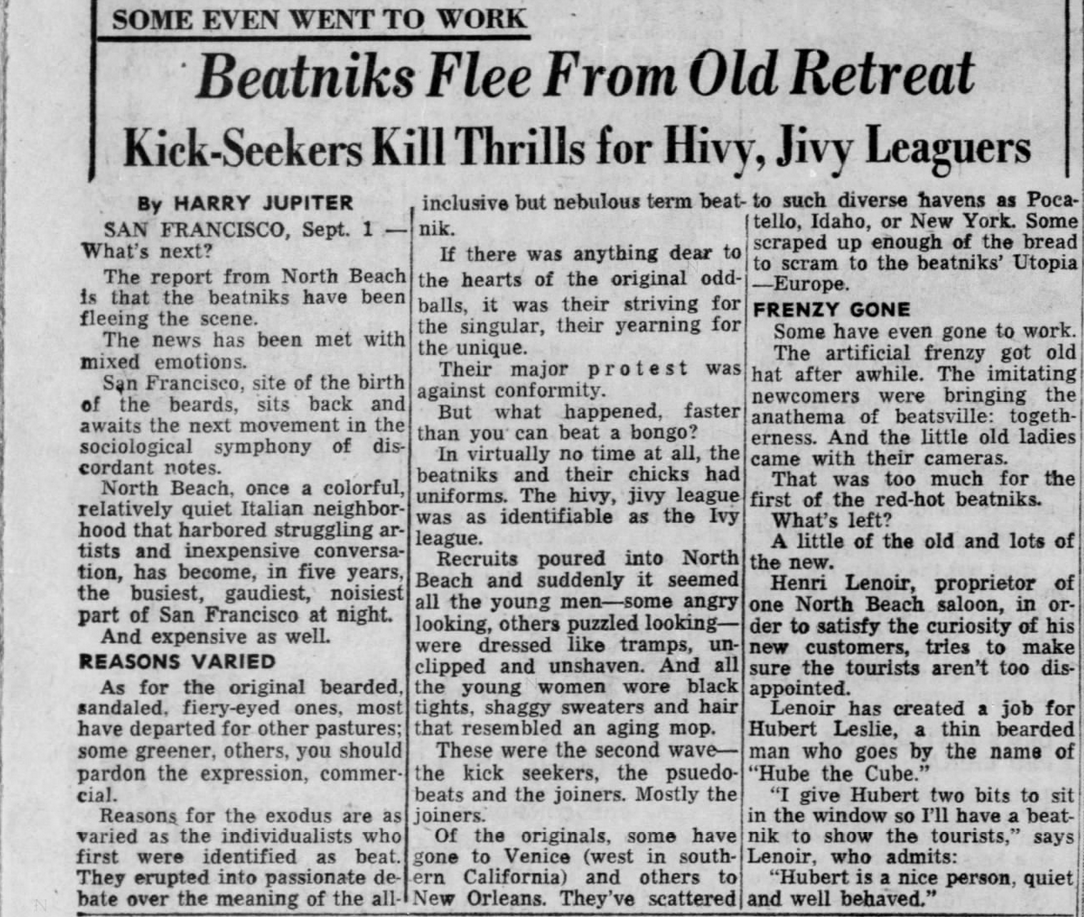
A very interesting short memoir by a fellow who hung out with Hube.
Posted By: Paul - Sat Dec 18, 2021 -
Comments (1)
Category: Drugs, Eccentrics, Bohemians, Beatniks, Hippies and Slackers, Cafes, Coffeehouses, Teahouses, and Other Caffeine Culture, 1950s, 1960s
Head-Ticking Scam
Robert Sanders of Loogootee, Indiana would get a job with a railroad, fake an injury, and then claim that, as a result of the injury, he had developed a ticking noise in his head.Doctors who examined him would confirm that he did, indeed, have a "peculiar ticking" like a "great big alarm clock" coming from inside his head. Sanders would then collect insurance money.
Sanders repeated this scam multiple times, collecting around $28,000 over the course of 12 years, until finally the Union Pacific Railroad charged him with fraud.
He was found guilty and sentenced to Wyoming's state penitentiary.
What I can't figure out is how Sanders managed to produce the ticking noise in his head, because the doctors who examined him seemed to hear something.

Billings Gazette - Feb 12, 1952
Posted By: Alex - Fri Dec 17, 2021 -
Comments (6)
Category: Frauds, Cons and Scams, Noises and Other Public Disturbances of the Peace, 1950s
Captain Santa Claus and His Reindeer Space Patrol
Never heard this one till yesterday.The singer's Wikipedia page.
Posted By: Paul - Fri Dec 17, 2021 -
Comments (2)
Category: Animals, Fads, Spaceflight, Astronautics, and Astronomy, Television, 1950s, Christmas
Miss Heat Pump of 1957
As far as I can tell, Ann Brueggemann was the only young woman ever crowned 'Miss Heat Pump'.I like how her ideas for her costume all look like elegant dresses, whereas I'm sure that the company's idea was to put her in a giant heat pump costume.
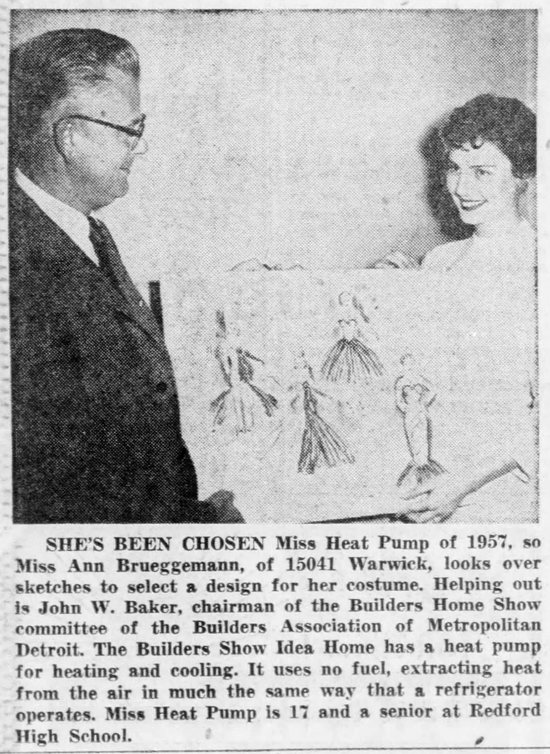
Detroit Free Press - Mar 24, 1957
Posted By: Alex - Fri Dec 10, 2021 -
Comments (5)
Category: Awards, Prizes, Competitions and Contests, 1950s
The Fainting of the Tigerettes
Sep 12, 1952: At the end of the first quarter of a high-school football game in Natchez, Mississippi, the 165 members of the Tigerettes cheerleading squad mistakenly marched onto the field to perform their halftime routine. Made aware of their mistake, the cheerleaders began to faint. All of them. One after another. A witness described them as "dropping out like flies". It remains one of the largest mass-fainting events in history.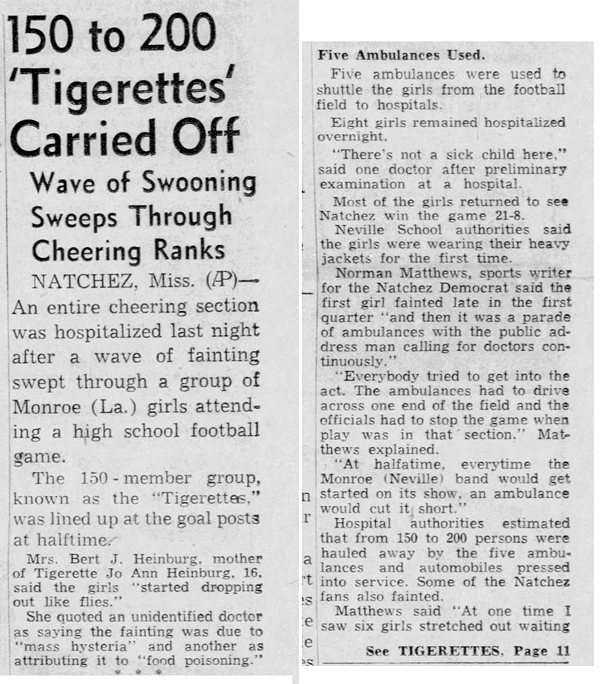
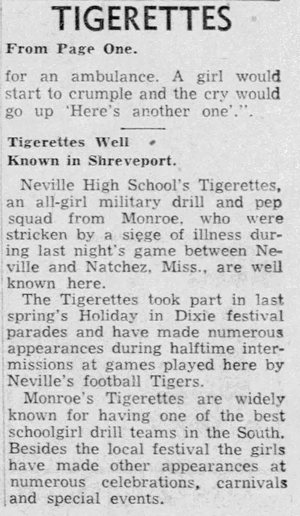
Shreveport Journal - Sep 13, 1952
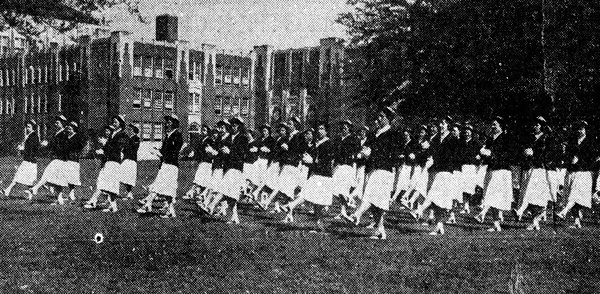
The Tigerettes
Monroe Morning World - Apr 27, 1952
Posted By: Alex - Thu Dec 09, 2021 -
Comments (1)
Category: Crowds, Groups, Mobs and Other Mass Movements, Psychology, 1950s
Uranium Rush Board Game
More pics and info at Board Game Geek.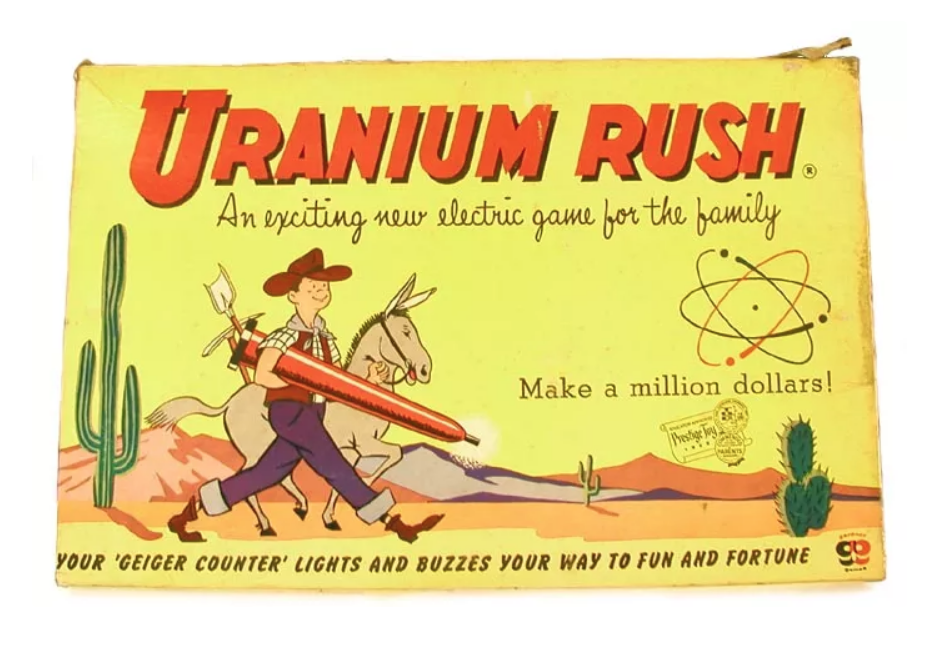
Posted By: Paul - Tue Dec 07, 2021 -
Comments (3)
Category: Games, Atomic Power and Other Nuclear Matters, 1950s
Good Things in Du Pont Cellophane
Things you can wrap in Du Pont cellophane: fresh fruits, vegetables, babies...Source: Saturday Evening Post, 1955 - via Hagley Digital Archives
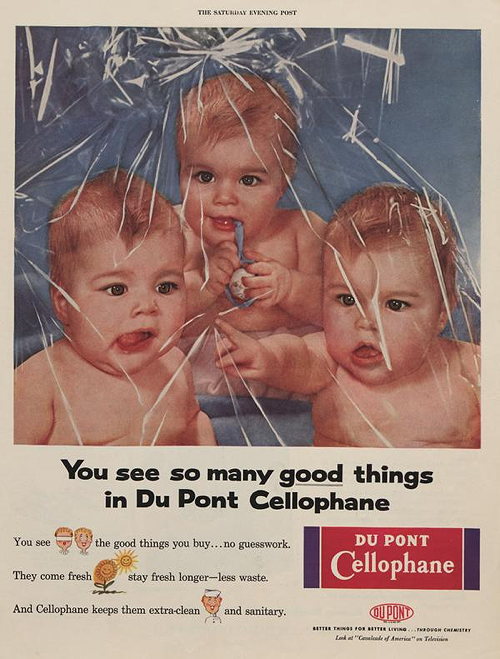
Posted By: Alex - Fri Nov 26, 2021 -
Comments (3)
Category: Babies, Advertising, 1950s
The Other JFK
John Francis Kennedy served three terms as Treasurer of Massachusetts, from 1954 to 1960. He was legendary for putting almost no effort (or money) into campaigning. He made no speeches, nor did he advertise. He didn't even have any relevant experience for the job. Before becoming state treasurer he had been a stockroom supervisor at the Gillette Safety Razor Company.By all accounts, the only reason for his political success was the resemblance of his name to John Fitzgerald Kennedy.
John Francis Kennedy probably would have kept running for state treasurer if he could have. But term limits prevented him. He tried running for governor in 1960 (while JFK was campaigning for President), but his winning streak finally ended.
More info: Commonwealth magazine, Our Campaigns
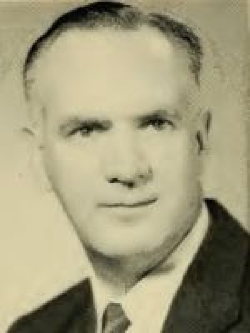
John Francis Kennedy
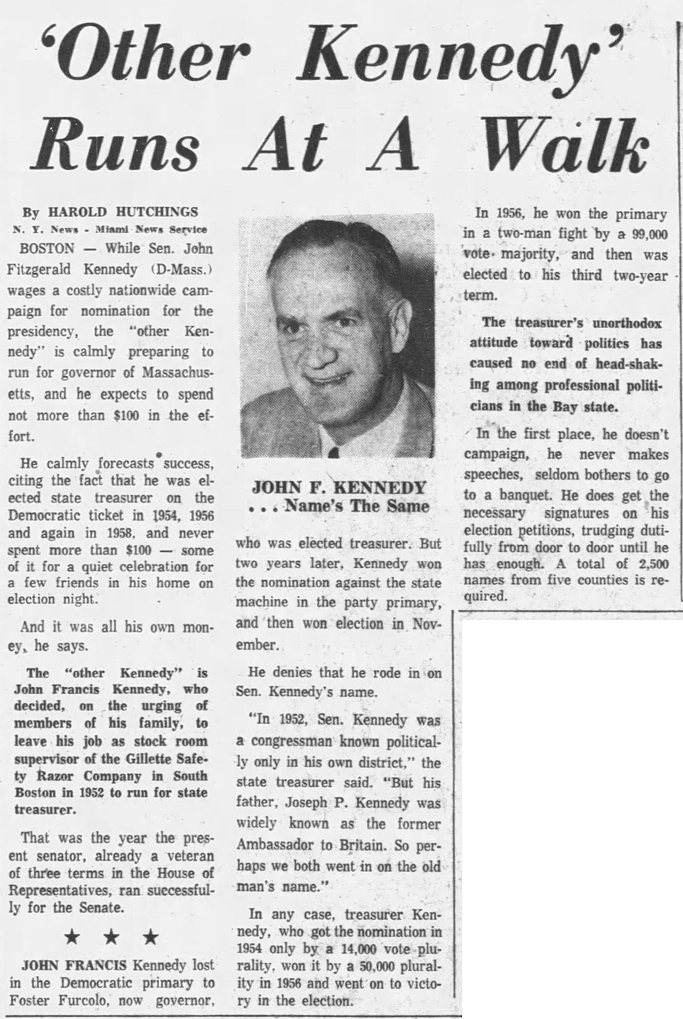
Miami News - May 22, 1960
Posted By: Alex - Sat Nov 20, 2021 -
Comments (4)
Category: Odd Names, Politics, 1950s
Beatniks Against Polio
What was the secret ingredient that made the rollout of the polio vaccine go so smoothly? Beatniks! If only we had some around today...Article source: Nashville Banner (Nashville, Tennessee) 16 Aug 1956, Thu Page 13
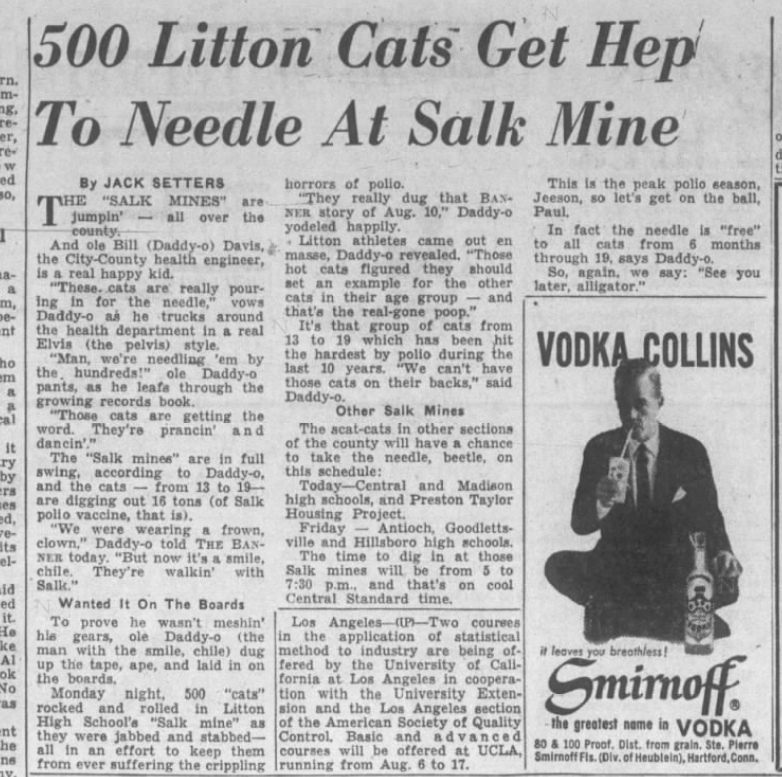
Posted By: Paul - Wed Nov 10, 2021 -
Comments (0)
Category: Medicine, Bohemians, Beatniks, Hippies and Slackers, 1950s

| Who We Are |
|---|
| Alex Boese Alex is the creator and curator of the Museum of Hoaxes. He's also the author of various weird, non-fiction, science-themed books such as Elephants on Acid and Psychedelic Apes. Paul Di Filippo Paul has been paid to put weird ideas into fictional form for over thirty years, in his career as a noted science fiction writer. He has recently begun blogging on many curious topics with three fellow writers at The Inferior 4+1. Contact Us |




